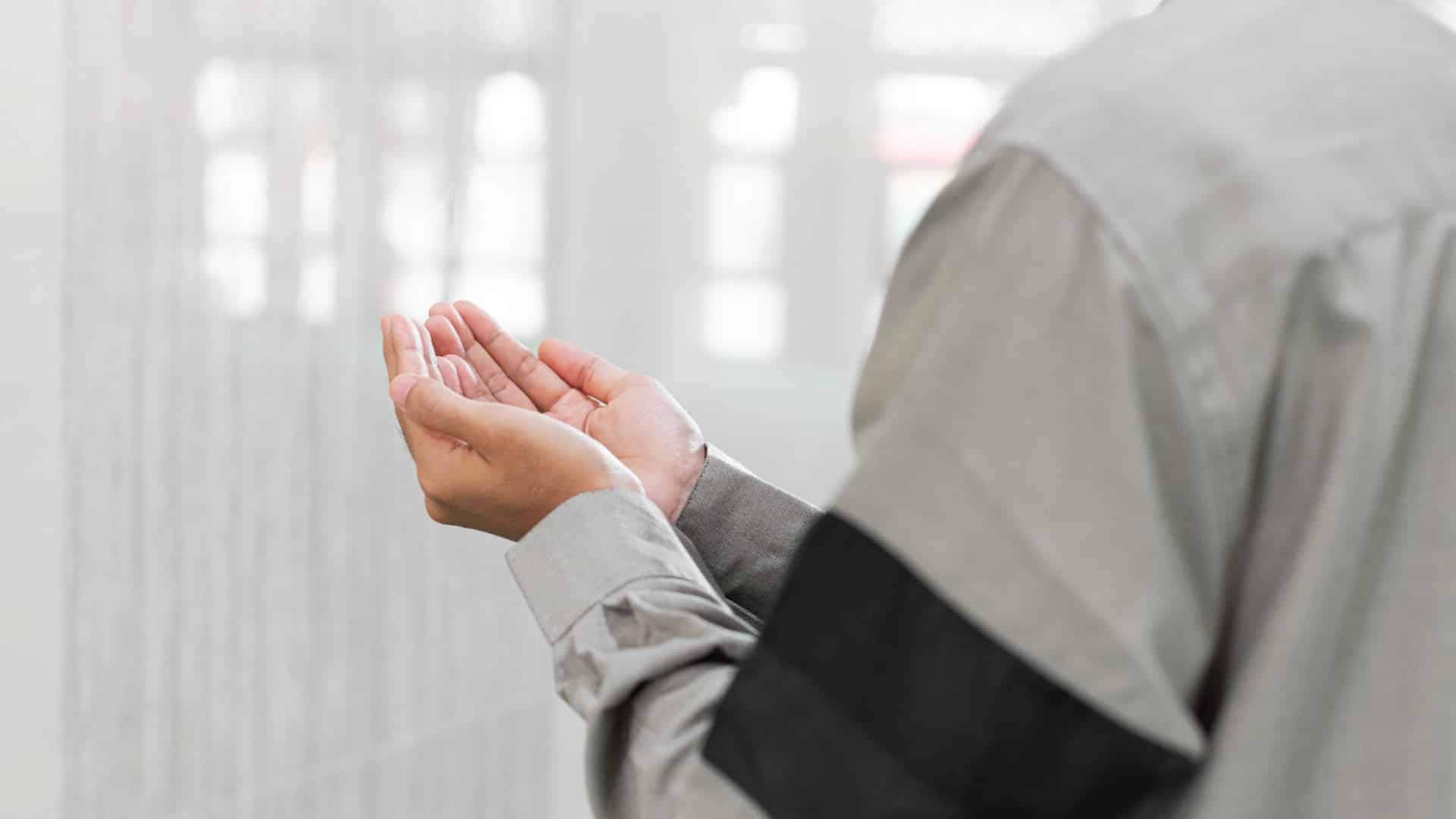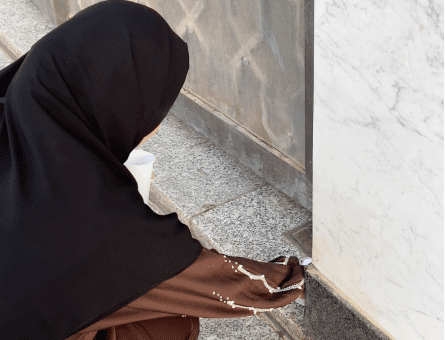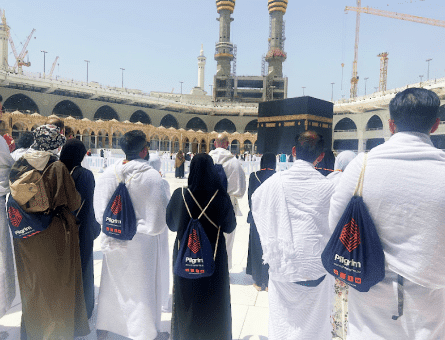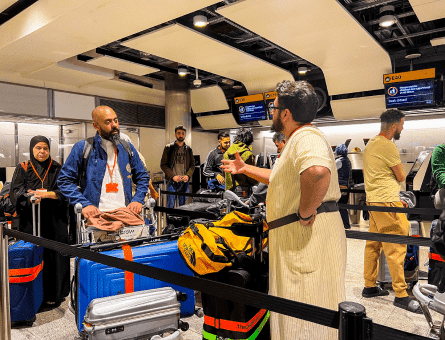Hajj Badal – Performing Hajj on Behalf of Someone
Also known as “Proxy Hajj,” Hajj Badal refers to the act of performing Hajj on behalf of someone who is unable to perform Hajj themselves. This includes people who are deceased, chronically disabled, or sick.
Although Hajj Badal has been practiced since the time of Prophet Muhammad (PBUH), today, the significance of Hajj Badal is supported by many a fatwa (input of Islamic scholars).
Keep reading to learn more about Hajj Badal and its importance in Islam.
What Is Hajj Badal?
Based on the Islamic history and terminology, Hajj is one of the five compulsory pillars of Islam along with Shahada, Salat, Fasting, and Zakat. It can be defined as the act of performing the Pilgrimage to the House of God or the Holy Ka’bah, in the city of Makkah, Saudi Arabia.
Hajj demonstrates the submission of Muslims to Allah (SWT) and their solidarity. It is said that performing Hajj or Umrah purifies a person’s heart and soul by freeing them from all worldly sins.
Hajj Badal, also known as Hajj e Badal in Urdu and Proxy Hajj, is when some who are unable to perform Hajj by themselves get a compulsory Hajj performed by another person on their behalf.
In other words, Hajj Badal is when you perform Hajj on behalf of someone (a loved one) who is sick and has no cure, is old, is disabled, or has passed away.
Whilst there are criteria that exclude some people from the obligation of Hajj, this does not always translate into the individual being eligible for someone else to complete Hajj Badal.
According to Fiqh literature, the person (Muslim) who performs the act of Hajj Badal – performing Hajj on someone else’s behalf – is called Ma’moor. However, that someone on whose behalf you are performing Hajj Badal is called Aamir.
Moreover, based on the teachings of all four schools of thought, Hajj Badal can only be performed for a person once a year. Also, one will only be eligible to perform Proxy Hajj once they have completed the obligation of performing Hajj themselves.
Incase you was wondering there is also a “Umrah Badal“, click the link to learn more.
Hajj Badal for Deceased – Is This Permissible?
Hajj Badal can be performed for someone who is deceased or dead (not in this world anymore). It is supported by a narration of Ibn’Abbas, who said that once a woman from Juhaynah came to meet Prophet Muhammad (PBUH) and asked,
To which Prophet Muhammad (PBUH) replied,
In simpler words, if a Muslim who has fulfilled all other obligatory rituals of Islam and had enough to perform the obligation dies without performing Hajj, in such a case, it is an obligation that their family (children) perform Hajj Badal on their behalf from the wealth he has left.
Also, Allah (SWT), having complete knowledge, knows the hearts and affairs of his worshippers and their intentions.
Therefore, if someone with sufficient wealth to perform Hajj dies without fulfilling the obligation, they shall fear that Allah (SWT) may question them for delaying Hajj unnecessarily.
Who Is Eligible to Perform Hajj?
Certain conditions make a Muslim eligible to perform Hajj Badal. First of all, the person appointed to perform Hajj on someone else’s behalf should be a sane Muslim.
Following this, before entering the state of Ihram, the person performing Hajj Badal should make intention (Niyah) on behalf of the person he is performing Hajj for.

While performing Hajj Badal for someone who is disabled or chronically ill or too old, one can only fulfil the obligation after they have been authorized. This means that it is up to the Aamir to send the Ma’moor of their choice.
Moreover, the Ma’moor – appointed person – should perform the Hajj (Hajj Al-Qiran or Hajj Al-Tamattu) according to the desire of the Aamir – the one who authorizes them. Lastly, the person who is performing Hajj Badal should at no cost miss any Fard (imperative actions) and is advised to perform it with a pure heart.
- Eligibility for Ma’moor:
The first condition to be Ma’moor is that you should be a mentally and physically fit Muslim. A Ma’moor can be either man or a woman Ma’moor. They should start their journey from Aamir’s place and perform it according to Aamir’s wish.
Most importantly, you are only eligible to be a Ma’moor once you have fulfilled your own obligation of Hajj.
- Eligibility for Aamir:
Aamir is someone on whom it is compulsory to perform Hajj. Still, they are unable to do so due to medical or physical illness, and that is also only if the disability or disease is permanent. Moreover, Aamir is supposed to support Hajj Badal financially.
However, Hajj Badal cannot be performed in the following conditions:
- You cannot perform Hajj Badal for two or more people at once.
- Hajj Badal cannot be performed on behalf of someone who is financially unstable or poor (as Hajj is not compulsory on them).
- Hajj Badal will not be accepted if someone aims to earn money through their act.
- It cannot be performed on behalf of a person who cannot go for Hajj due to security or political reasons.
Hajj e Badal in Quran or Hadiths
In the Holy Quran, Allah (SWT) on the significance of Hajj for Muslims says:
Ibn Abbas narrated that once Prophet Muhammad (PBUH) heard a man reciting “Labbayka a Shabrama” meaning “instead of someone named Shabrama.” So Prophet Muhammad (PBUH) asked the man if he had performed Hajj himself. The man said no.
Then Prophet Muhammad (PBUH) told the man that he should first perform it himself, then on behalf of another Muslim. (Abu Dawud)
Benefits
Hajj Badal is performing Hajj on behalf of someone who is either unable to or medically unfit or dead. Listed below are some common benefits of Hajj Badal:
Benefit 1: You Can Perform Hajj Badal on Behalf of the Deceased
As stated earlier, on several occasions, when Prophet Muhammad (PBUH) was questioned if someone could perform Hajj on behalf of their deceased parents, Prophet Muhammad (PBUH) told them that they should.
Hajj Badal allows you to perform Hajj on behalf of your deceased parents, children, and relatives. Allah (SWT) rewards both the Aamir and the Ma’moor for the holy act. In other words, by performing Hajj Badal, one can donate the reward to the deceased loved one.
Benefit 2: You Can Perform Hajj Badal on Behalf of Someone Who’s Sick or Disabled
According to Abdullah bin Abbas’s narration, one day, his brother Al-Fadl was riding behind Prophet Muhammad (PBUH) when a woman from the Khath’am tribe approached them and said,
The aforementioned incident proves that one can perform Hajj Badal for their old or disabled parents, grandparents, relatives, and children.
Summary – Hajj Badal
Hajj e Badal or Hajj Badal is the act of performing the compulsory obligation of Hajj on behalf of someone else. You can only perform Hajj Badal on one condition – that on behalf of the one you are performing it for has either died, is ill or disabled, or is too old to perform Hajj.
Since the time of Prophet Muhammad (PBUH), Muslims worldwide have been actively performing Hajj Badal.
Explore The New Pilgrim App
The Ultimate App
for Hajj and Umrah!













